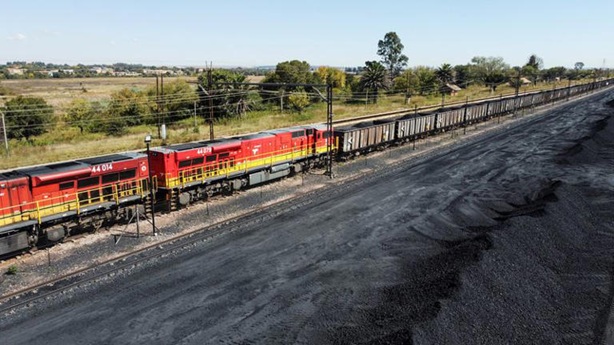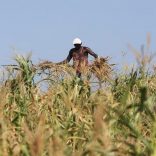Zulu king challenges professor to stick fight
South Africa opens freight rail network to private firms

FILE - A Transnet Freight Rail train is seen at the Bronkhorstspruit station, in Bronkhorstspruit, South Africa, April 26, 2022. [File photo: Reuters/Siphiwe Sibeko]
South Africa’s government said on Friday it will allow private firms to run trains on its freight rail network, aiming to boost efficiency as state-owned logistics firm Transnet struggles to keep up with demand.
Transnet, which runs the country’s freight rail and port services, has faced equipment shortages and maintenance backlogs worsened by widespread cable theft and vandalism, prompting the government to seek private sector involvement.
Transport minister Barbara Creecy said 11 out of 25 train operating companies that applied for access to the freight network had met the requirements and will proceed to the next stage of negotiations and contracting, without naming the companies. The firms secured slots across 41 routes, she said.
“They are not cannibalising Transnet freight, they are adding capacity to what Transnet freight is already carrying,” Creecy told reporters.
The initiative targets routes used to transport bulk commodities like coal, iron ore, chrome, manganese, sugar and fuel.
Conditional award letters will outline requirements such as railway safety permits, rolling stock readiness and securing port offloading capacity. Slot durations will range from one to 10 years, Creecy said.
This year, the government has extended 149 billion rand ($8.42 billion) in guarantees to support Transnet’s recovery but says it has limited resources to fund infrastructure development and address logistics backlogs.
Creecy said Transnet was also seeking 35 billion rand in infrastructure funding from government this year.
Transnet’s freight rail volumes dropped to 152 million metric tons in the 2023/24 financial year, down from a peak of 226 million metric tons in 2017/18.
The new operators are expected to carry an additional 20 million tons of freight annually starting from the next financial year, advancing the government’s goal of transporting 250 million tons by rail annually by 2029, Creecy said.
The operators could add 10 million tons of coal export capacity over the next three years, she added, from current levels of around 50 million tons.
Bulk mineral exporters such as Kumba Iron Ore and thermal coal exporter Thungela Resources have been forced to curtail production to align with Transnet’s limited capacity.
($1 = 17.6597 rand)












Leave a Reply
Be the First to Comment!
You must be logged in to post a comment.
You must be logged in to post a comment.